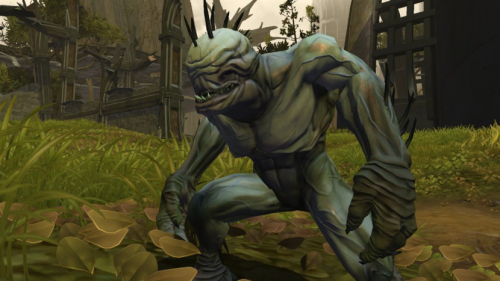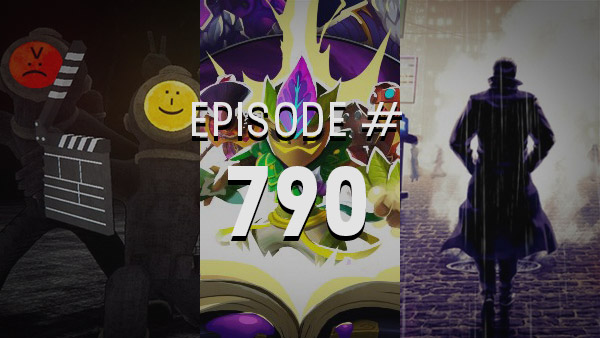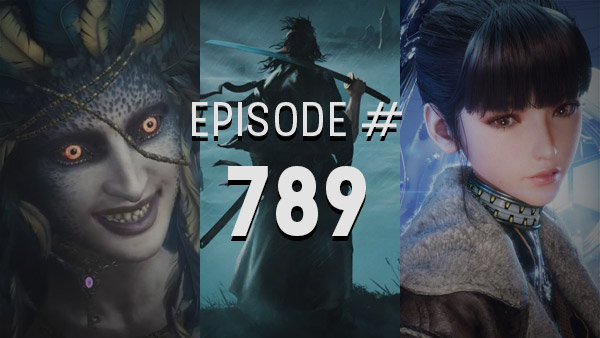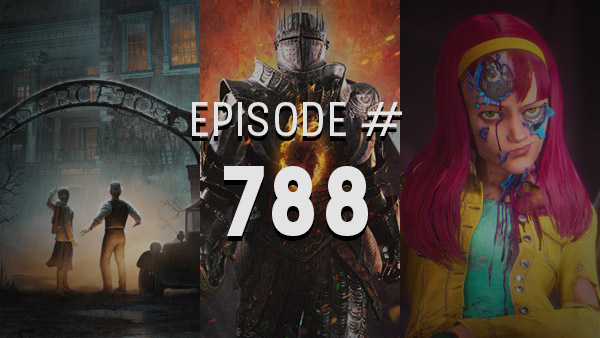Your login information returned multiple users. Please select the user you would like to log in as and re-type in your password.

Whenever we play video games, we seem to adapt this kind of submissive mindset. The game tells us to do some task and we just shrug our shoulders and go about it. It really doesn't matter how meanial or crazy the task is, more often than not, we just continue on for the sake of the game. Of course, we can't just stop and say, "I don't want to do this" because, well, then we can't continue the game. Developers, though, always seem to design their games around this mindset we have when playing, but why is that?
Why do we go out to slay a dragon because some old man says it is our character's destiny? Why do we run across the street for some book that an NPC is too lazy to get? Why do we deploy into a war zone and just start gunning down anyone whenever the aiming reticule turns red? It's really that carrot on a stick, "keep going for the reward", set up that most games have nowadays. Long gone are the days when we would play games just to beat a high score, now we actually seek something within the game itself to help us get even more rewards that progress to even further rewards. No matter how shameless or bizarre the task, we'll see it done for that shiny new piece of gear, or the next segment of the narrative. There's nothing particularly outstanding about realizing this concept or even conforming to it; like I said, you can't exactly progress through a game without doing what it tells you. The interesting bit is developers not really taking advantage of this mindset when it could provide some very compelling scenarios.

Let me provide an example. SWToR, some months ago, had a world event known as the Rakghoul Pandemic. This event involved Rakghouls (a zombie-like creature pictured above) getting to Tattooine and infecting the local creatures and Tusken Raiders. Players from both factions could fly to Tattooine and begin a quest line that would unravel just how the Rakghouls got to the planet to begin with. As players completed quests and killed the diseased populations, they could earn actual vials of the Rakghoul virus. These vials could then be turned in for various upgrades and some cosmetic rewards. You would think players would hand them in to medical personel or something along those lines, but no! The person taking these vials was, in fact, a Jawa. Just some random Jawa that would sit on top of a sand dune next to a Dewback that wore a saddle with "Medical Assistance" crudely drawn on the side of it. I mean, sure, you're handing over the Star Wars equiviliant of the T-Virus to some Jawa, but at least you got cool stuff for doing so!
It didn't take long for players to realize just how suspect that whole situation was, and that was when the speculation began. There were several theories that basically all boiled down to either the Jawa having a lab somewhere and was expirimenting with the virus or the samples get stolen and the game suddenly becomes a mix of Resident Evil and Star Wars. Such an occurrence has yet to happen, but I think it would be amazing if it did. Something like that would be a great play on that whole "carrot on a stick" design that games present to us. Such scenarios don't even have to be done in a joking way either. A game that relies heavily on the illusion of choice could very easily make decisions that seem trivial turn around to bite the player in the ass at some instance later on. At that point it really has more of an emotional impact as the player kicks themselves for making those decisions, but not in a way that it would cause game resetting levels of regret.

Of course, there is nothing wrong with driving the player forward with some kind of promised reward for their trouble, but some games do apply this method better than others. Running errands for some NPC is really done begrudgingly just for the sake of said reward, but games that involve some grand adventure, great narratives, or even just fun gameplay can be the driving forces alone with the physical reward just being the icing on the cake. It is important to have players rewarded for their efforts in games -it is one of the reasons why cheevos exist- but playing on the fact we never really expect a consequence until it has already happened provides some very interesting opportunities that I would love for more developers to take advantage of. In the mean time, I'll keep chasing that carrot for more shiny pieces of loot.




Comments
11 years, 4 months ago
Brilliant article. I really enjoyed reading it. Bioshock kind of made me realize that I didn't think about what I did in video games the majority of the time.
11 years, 4 months ago
^ Absolutely. Bioshock made me think that too especially when you confront Andrew Ryan. Great article, Frank!
11 years, 4 months ago
Eh, Bioshock is actually more about your choices not mattering at all and that it's just up to the whims of the developer to dictate what you do (which I personally don't adhere to and I ended up liking Bioshock less for it).
However, Spec Ops: The Line is entirely about this subject, Seesaw, and even though it's got some flaws (sort of one glaring flaw in how it tells its story), I think it succeeds pretty well otherwise.
11 years, 4 months ago
I guess that's why I mostly play open world RPG's; I like to choose my own path.
11 years, 4 months ago
Majority of game titles tell gamers a story through a character you're playing. They want you to follow a preset path for the sake of story telling and that's not a bad thing. Half-Life is a pretty leaner game with no choices for you to make, still the game is great because of the story. Then there are games like Skyrim where you don't have to listen to the guy who tells you to kill a dragon. I put over 100 hours in that game and barely touched the main quest.
As for quests that relate specifically to MMOs, the short answer - players just don't really care. They play MMOs to spend time with friends raiding, obtaining new loot and gaining levels. Good story quests are overrated. Doesn't matter how good the story is when you have to the same quest over and over again. Also, main/epic quests usually have a more engaging story line than just killing 20 rats.
11 years, 4 months ago
I really enjoyed this article. To quote Dexter, it probably has something to do with our "lizard brain." We earn for progression, our lives are shaped by it (go to school, go to college, job, spouse, etc). We are subject to constantly bettering ourselves, in a way, somewhat Darwinism/survival of the fittest. We understand now that the tasks = bettering ourselves/progression so we do it. Back in the highscore arcade days this mindset still existed (the drive to progress to better our past score and other's score) but it has evolved with the drive towards more narrative games (plot progression/character development/the urge to get to the credits).
11 years, 4 months ago
I experience this all the time and it bothers me that so many games seem to be so empty of meaning. I stopped playing Torchlight when I couldn't find an answer for "why am I playing this?". Highly acclaimed Bastion keeps throwing a new area full of enemies at me again and again and again cause I need to get item X. What is this for? The only reason why I keep/kept playing is/was to see what made this game so great. So far I haven't found the answer. Maybe I'm too stupid or don't examine the game enough to understand its deep themes but there seems to be so much filler making me die of boredom instead of challenging fights. At the moment I'd rather just watch the end of the game to see how long do I need to do this and why should I even play it.